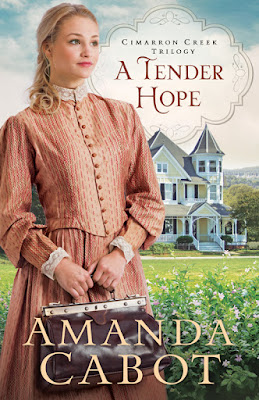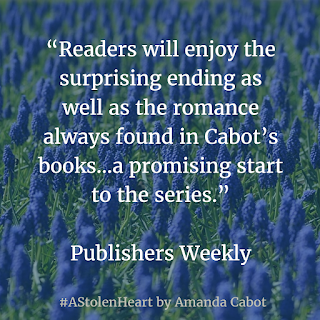The Affect of a Hoard on Newly-Sprouted Grass
Did you cringe when you read the title? I certainly did when I wrote it, but I wanted to snag your attention for my rant about confused and misused words.
I’ll be the first to admit that English is not an easy language, but the confusion between homonyms and the misuse of words with similar pronunciations is becoming so common that I had to rant.
There are two badly misused words in my title: “affect” and “hoard.” Let’s start with the easier one, “hoard.” “Hoard” is both a noun and a verb. The problem is that as a noun, it’s often confused with “horde,” although the two have very different meanings.
The Nouns
Noun
|
Definition
|
Example
|
Hoard
|
A supply or fund stored up and often hidden away
|
The chipmunk had a hoard of acorns hidden under the tree in preparation for winter.
|
Horde
|
A teeming crowd or throng
|
The hordes of rioting citizens broke store windows and began looting.
|
See what I mean about the two nouns having very different meanings? And, while Spellchecker will flag many errors, the incorrect use of hoard vs. horde isn’t one of the mistakes it catches.
The Verb
Verb
|
Definition
|
Example
|
Hoard
|
To lay up a hoard
|
The chipmunk hoarded acorns under the tree.
|
Note that the verb has the meaning you would expect. It’s the action of creating a hoard. “Horde” is never a verb.
That was relatively simple. “Affect” is considerably more complex. Like “hoard,” it’s both a noun and a verb. Like “hoard,” it’s often confused with another word, in this case “effect.” The similarities end there. “Effect” is also both a noun and a verb. What makes these two words even more confusing is that the nouns and verbs are not as closely related as you might expect.
When you see the word “change,” whether it’s a noun or a verb, you know that you’re dealing with some type of alteration. The same is true of many other words that are both nouns and verbs, including “hoard.” Unfortunately, that’s not the case with “affect” and “effect,” which is one of the reasons why these words are misused so often.
The Verbs
Verb
|
Definition
|
Example
|
Affect
|
To put on a pretense
|
He affected an air of nonchalance he was far from feeling.
|
To produce an effect
|
The blizzard affected air travel across the West.
| |
Effect
|
To bring about
|
Though she tried, she was unable to effect a change in the company’s hiring policies.
|
Though both verbs are used in ordinary language, the most commonly used is the second definition of “affect.”
If relationships between these verbs and their nouns were as close as they are for many English words, you might expect the noun “affect” to be something produced by the second definition of the verb “affect,” changing the familiar phrase “cause and effect” into “cause and affect.” That might seem logical, but I never said English was a logical language.
Here are the correct definitions of “affect” and “effect.”
The Nouns
Noun
|
Definition
|
Example
|
Affect
|
An observed emotional response Note: This is a technical term used in psychology and psychiatry and is rarely used in ordinary speech or writing.
|
She maintained the same affect throughout her therapy.
|
Effect
|
Something that inevitably follows an antecedent, as in a cause and effect
|
The blizzard had the effect of closing major airports.
|
It’s only been in the past year or so that I’ve seen “affect” commonly used as a noun, and each time I see it, I shake my head in dismay, wondering why the author chose that word. In many instances, the author used it as a synonym for “appearance,” perhaps thinking that “affect” made her sound more educated. If so, she would have been disappointed in my reaction, because I felt she was like Amy March from Little Women, affecting a level of sophistication she did not possess. (Note that I used the first definition of the verb “affect” in that sentence.)
The good news is that Spellchecker will flag the erroneous use of “affect” as a noun, although it does not distinguish between the correct and incorrect use of either “affect” or “effect” as a verb.
Let’s return to the title of this post. Does “The Observed Emotional Response of a Hidden Store on Newly-Sprouted Grass” make any sense? Of course not. On the other hand, if I’d written, “The Effect of a Horde on Newly-Sprouted Grass,” there would have been no reason to rant, because you’d have had no trouble imagining a crowd causing trampled grass.
Be careful with the words you use. They’re not interchangeable.
~ Amanda
 Bio:
Bio:
~ Amanda
 Bio:
Bio:
Amanda Cabot’s dream of selling a book before her thirtieth birthday came true, and she’s now the author of more than thirty-five novels as well as eight novellas, four non-fiction books, and what she describes as enough technical articles to cure insomnia in a medium-sized city. Her most recent release, Out of the Embers, introduces readers to the fictional town of Mesquite Springs, Texas, where danger just might lurk.”
Her inspirational romances have appeared on the CBA and ECPA bestseller lists, have garnered a starred review from Publishers Weekly, and have been nominated for the ACFW Carol, the HOLT Medallion, and the Booksellers Best awards. A popular workshop presenter, Amanda takes pleasure in helping other writers achieve their dreams of publication.
Find Amanda:

















